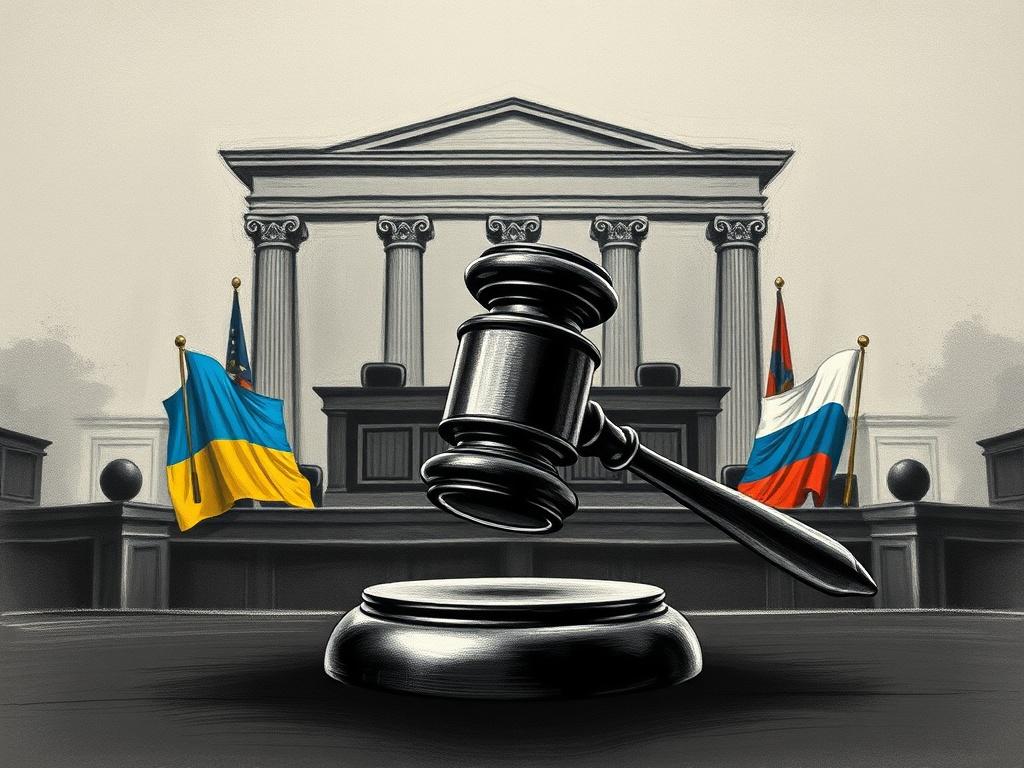
The ongoing legal battle between Ukraine and Russia at the International Court of Justice (ICJ) has captured global attention, sparking interest and concern over international law's role in resolving conflicts. As both nations navigate this complex case, understanding the key players involved and their positions is crucial for grasping the broader implications of this high-stakes legal dispute. This blog post offers a detailed exploration of the ongoing legal battle at the International Court of Justice, delving into the arguments presented by both sides and the pivotal international law principles that underpin the case.
In addition to outlining the current landscape of the Ukraine v. Russia case, we will analyze the potential ramifications of the ICJ's ruling and what it could mean for the future of international relations and accountability. By breaking down the legal framework and exploring expert predictions, we aim to provide readers with a comprehensive understanding of this significant conflict and its implications for global governance. Join us as we navigate the intricacies of this landmark case and consider the possible outcomes that could shape the future of international law and diplomatic relations.
A detailed exploration of the ongoing legal battle at the International Court of Justice: Key players and their positions
The ongoing legal battle between Ukraine and Russia at the International Court of Justice (ICJ) involves a complex interplay of states and legal representatives. Ukraine, as the applicant, asserts that Russia has violated the United Nations Convention on the Prevention and Punishment of the Crime of Genocide and the International Convention for the Suppression of the Financing of Terrorism. Ukraine’s legal team, led by prominent international law experts, represents the nation's interests and aims to hold Russia accountable for its actions in Eastern Ukraine and Crimea. On the other hand, Russia, while facing allegations, has engaged a team of lawyers to reject these claims and assert its interpretation of international law, arguing that the ICJ lacks jurisdiction over the case.
The positions of both nations reflect broader geopolitical tensions that extend beyond legal arguments. Ukraine seeks not just reparations but also a reaffirmation of its sovereignty and territorial integrity, while Russia aims to contest the legitimacy of the proceedings and defend its strategic interests in the region. This legal confrontation is not merely a courtroom battle; it symbolizes the ongoing clash between principles of international law and the reality of state actions on the global stage. As the world watches, the ICJ's proceedings could set critical precedents for how future disputes between states unfold, particularly in situations involving aggression and alleged violations of human rights.
The legal implications of the Ukraine v. Russia case: A comprehensive breakdown of international law principles
The Ukraine v. Russia case at the International Court of Justice (ICJ) raises significant questions about international law, particularly concerning state sovereignty, territorial integrity, and the prohibition of the use of force. Ukraine argues that Russia's military intervention and annexation of Crimea violate fundamental principles outlined in the United Nations Charter and various international treaties. The case directly engages legal concepts such as the right to self-determination and the legality of intervention, complicating the judicial proceedings by introducing debates over historical claims, national identity, and territorial integrity.
Additionally, the ICJ must navigate complex legal doctrines, such as customary international law and the definition of genocide, as Ukraine accuses Russia of actions that could be categorized under this grave charge. A thorough comprehension of these legal principles enables a deeper understanding of the case's ramifications beyond the court's walls. This case could set important precedents for how international law addresses issues of aggression, state accountability, and the protection of minority rights in conflict situations. As the international community closely watches the proceedings, the outcomes may reshape the future of international relations and the enforcement of global legal standards.
What the future holds: Predictions and potential outcomes of the International Court of Justice’s ruling on the Ukraine v. Russia case
The International Court of Justice (ICJ) ruling on the Ukraine v. Russia case stands to significantly influence international relations and the application of international law. If the court rules in favor of Ukraine, it could establish a strong precedent, reinforcing the principles of sovereignty and territorial integrity. This outcome would not only bolster Ukraine's claims on the international stage but may also deter future acts of aggression by establishing legal consequences for states that violate international norms. Conversely, if the ruling favors Russia, it could embolden similar actions by other nations, potentially destabilizing the legal framework that governs state behavior and conflicts.
As various stakeholders monitor the proceedings, the ruling's implications extend beyond legal significance. Countries aligned with either side are likely to reassess their diplomatic strategies based on the court's decision, influencing international alliances and economic relationships. Furthermore, the response from international organizations, such as the United Nations, may vary depending on the ruling. Should the ICJ find Russia in violation of international law, we might see increased sanctions or diplomatic pressure aimed at Moscow. Ultimately, the ruling could reshape the geopolitical landscape in Eastern Europe, rendering it crucial for analysts and policymakers to contemplate its long-term effects on stability and order in the region.